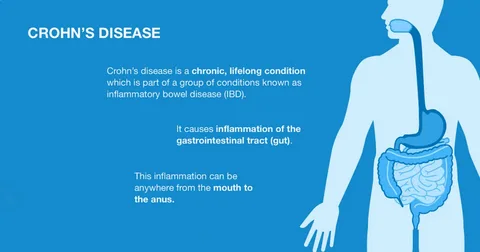
How Your Diet Affects Migraines: Foods to Avoid, Foods to Eat
Understanding the Connection Between Diet and Migraines
Dietary factors such as food triggers, dehydration, and nutrient deficiencies can influence migraine frequency, severity, and duration. Common dietary triggers for migraines include:
Food Additives
Certain additives such as monosodium glutamate (MSG), nitrates, and artificial sweeteners may trigger migraines in susceptible individuals.
Tyramine
Foods high in tyramine, such as aged cheeses, cured meats, and fermented foods, have been associated with migraine attacks in some people.
Caffeine
While moderate caffeine intake may provide headache relief for some individuals, excessive consumption or caffeine withdrawal can trigger migraines in others.
Alcohol
Certain alcoholic beverages, particularly red wine, beer, and spirits, contain compounds that can trigger migraines in susceptible individuals.
Foods to Avoid to Reduce Migraine Risk
To reduce the risk of migraine attacks, consider avoiding or minimizing consumption of the following trigger foods:
Aged Cheeses
Examples include blue cheese, cheddar, and Parmesan, which are high in tyramine.
Processed Meats
Deli meats, hot dogs, and bacon often contain nitrates and nitrites, which can trigger migraines in some people.
Artificial Sweeteners
Aspartame, sucralose, and other artificial sweeteners have been linked to migraines in some individuals.
MSG
Found in many processed and packaged foods, MSG is a common trigger for migraines.
Caffeine
Limit consumption of caffeinated beverages, particularly if you experience caffeine withdrawal headaches.
Alcohol
Monitor your alcohol intake and avoid beverages known to trigger migraines, such as red wine, beer, and certain cocktails.
Migraine-Friendly Foods to Include in Your Diet
While avoiding trigger foods is important, incorporating nutrient-rich, migraine-friendly foods into your diet can also help manage migraine symptoms. Consider adding the following foods to your meals:
Fresh Fruits and Vegetables
Rich in vitamins, minerals, and antioxidants, fruits and vegetables can help reduce inflammation and support overall health.
Whole Grains
Choose whole grains such as brown rice, quinoa, and oats, which provide fiber and essential nutrients without triggering migraines.
Lean Proteins
Opt for lean sources of protein such as poultry, fish, tofu, and legumes, which provide essential amino acids without the added risk of triggering migraines.
Healthy Fats
Incorporate foods rich in omega-3 fatty acids, such as fatty fish, flaxseeds, and walnuts, which have anti-inflammatory properties and may help reduce migraine frequency and severity.
Hydration
Drink plenty of water throughout the day to stay hydrated, as dehydration can trigger migraines in some individuals.
Practical Tips for Managing Migraines Through Diet
In addition to avoiding trigger foods and incorporating migraine-friendly foods into your diet, consider the following tips for managing migraines through diet:
Keep a Food Diary
Keep track of your dietary intake and migraine symptoms to identify potential trigger foods and patterns.
Eat Regular Meals
Maintain regular meal times and avoid skipping meals, as fluctuations in blood sugar levels can trigger migraines in some individuals.
Practice Portion Control
Be mindful of portion sizes, especially when consuming trigger foods, and avoid overeating or consuming large meals.
Limit Processed Foods
Minimize consumption of processed and packaged foods containing artificial additives, preservatives, and flavor enhancers.
Manage Stress
Incorporate stress-reduction techniques such as mindfulness, meditation, yoga, or deep breathing exercises to help manage migraine triggers.
FAQs About Diet and Migraines
Can certain foods relieve migraine symptoms?
While there is no one-size-fits-all approach, some individuals may find relief from migraine symptoms by consuming foods rich in magnesium, riboflavin (vitamin B2), and other nutrients with potential migraine-fighting properties.
How long does it take for dietary changes to impact migraine frequency and severity?
The timeline for experiencing changes in migraine frequency and severity can vary depending on individual factors, including dietary habits, lifestyle factors, and overall health status. It may take several weeks to months to notice significant improvements after implementing dietary changes.
Are there specific diets recommended for migraine prevention?
While no single diet is universally recommended for migraine prevention, some individuals may benefit from following a low-tyramine diet, a low-histamine diet, or the Mediterranean diet, which emphasizes whole foods, lean proteins, and healthy fats.
Are food allergies or sensitivities linked to migraines?
Some individuals may experience migraines as a result of food allergies or sensitivities, particularly to common trigger foods such as gluten, dairy, and certain additives. Identifying and avoiding trigger foods may help reduce migraine frequency and severity in these cases.
Can dietary supplements help prevent migraines?
Some dietary supplements, such as magnesium, riboflavin (vitamin B2), coenzyme Q10, and butterbur extract, have been studied for their potential migraine-preventive effects. However, individual responses to supplements may vary, and it’s important to consult with a healthcare professional before starting any new supplement regimen.
Is it necessary to follow a strict diet to manage migraines?
While avoiding trigger foods and incorporating migraine-friendly foods into your diet can help manage migraines, it’s not always necessary to follow a strict diet. Making gradual changes and finding a balanced approach that works for you is key.
Can stress impact migraine frequency and severity?
Yes, stress is a common trigger for migraines in many individuals. Practicing stress-management techniques, such as relaxation exercises, mindfulness, and regular physical activity, can help reduce the frequency and severity of migraines.
Conclusion
Diet can play a significant role in migraine management, with certain foods acting as triggers for some individuals while others may offer relief from symptoms. By identifying and avoiding trigger foods, incorporating nutrient-rich, migraine-friendly foods into your diet, and adopting healthy eating habits, you can take proactive steps to manage migraines and reduce their impact on your daily life. Remember that individual responses to dietary changes may vary, and it’s important to work with a healthcare professional to develop a personalized approach to migraine management that addresses your unique needs and preferences. With patience, persistence, and a proactive approach to diet and lifestyle, you can empower yourself to better manage migraines and improve your overall quality of life.
- Nutritional Deficiencies and Crohn Disease - April 11, 2024
- Ease Your Sugar Cravings with DIY Bitters - April 11, 2024
- How Your Diet Affects Migraines: Foods to Avoid, Foods to Eat - April 11, 2024



